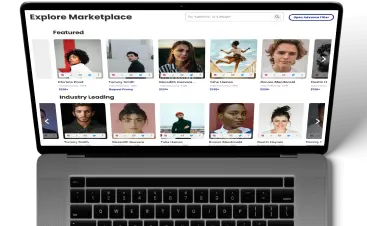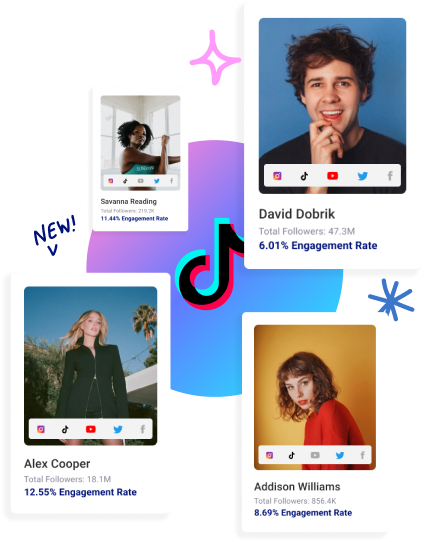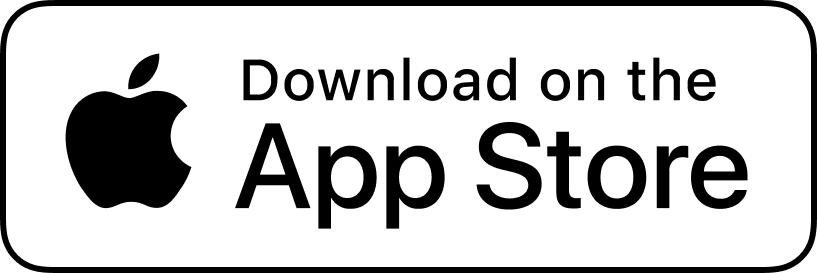Imagine this: you’re scrolling through Instagram, and you come across a beautifully crafted tutorial on how to style your home for the holidays. A few posts later, you see someone raving about a must-try skincare product with a discount code. Both posts grab your attention, but they serve different purposes—and the people behind them are likely content creators and influencers. While their work might look similar at first glance, the distinction between them is crucial for brands navigating digital marketing.
This blog dives into the differences between content creators and influencers, their unique benefits, and how you can leverage their skills for your next campaign. Whether you’re exploring opportunities in the creators marketplace or debating who to partner with, this guide has you covered.
Content Creator vs. Influencer: What Is the Difference?
The primary distinction between content creators and influencers lies in their focus and approach to building an online presence.
Content Creator
A content creator produces original, high-quality content tailored for specific platforms. They focus on storytelling, creativity, and skill, making everything from videos and photos to blogs and graphics. Content creators prioritize creating value for their audience, often emphasizing education, entertainment, or inspiration. They may or may not have a large following, but their strength lies in their ability to produce engaging professional content.
Examples of content creators:
- A YouTuber sharing cooking tutorials.
- A photographer capturing visually stunning travel shots for Instagram.
- A writer publishing insightful blogs on industry trends.
Influencer
Conversely, influencers have built a dedicated following on social media platforms. Their value lies in their ability to “influence” their audience’s purchasing decisions through trust and relatability. Influencers focus on personal branding and audience connection, leveraging their popularity to promote products or services.
Examples of influencers:
- A fitness enthusiast endorsing workout gear on Instagram.
- A beauty guru reviewing makeup products on TikTok.
- A lifestyle blogger sharing product recommendations with their followers.
Key Differences
| Aspect | Content Creator | Influencer |
| Focus | Creating engaging content | Building audience trust |
| Goal | Showcasing skills and expertise | Driving consumer actions |
| Metrics | Quality and originality | Reach and engagement |
While these roles overlap—many content creators are influencers and vice versa—the distinction often comes down to priorities. Content creators focus on the craft, while influencers focus on the relationship.
What Are the Benefits of Working with Content Creators?
Content creators bring immense value to brands looking to elevate their digital presence. Here are some of the key benefits:
-
High-Quality Content Production
Content creators excel at producing polished, professional content. They have the skills, tools, and expertise to create visuals, videos, or written pieces that align with your brand’s identity. This content can be repurposed across various marketing channels, ensuring consistency and a high standard.
-
Authentic Storytelling
Content creators with a knack for storytelling craft narratives that resonate with audiences. This approach ensures your message feels genuine and relatable, making it easier to connect with potential customers.
-
Platform-Specific Expertise
Content creators understand the nuances of different platforms. Whether it’s an eye-catching TikTok reel or a long-form blog post, they know how to tailor content to fit the medium and maximize engagement.
-
Long-Term Value
Even if a content creator doesn’t have a massive following, their content can continue delivering value over time. Brands can use this content for future campaigns, ensuring a strong return on investment.
This post by Seth Phillips above on Instagram, popularly known as the face of the Instagram account ‘Dude With Sig’n, has become recognizable. With over 8 million followers, the account features Phillips holding simple cardboard signs with humorous, relatable, and sometimes satirical messages in everyday public settings. Seth is primarily a content creator, but his work with Dude With Sign blurs the lines between content creation and influencer marketing. While he focuses on creating humorous content, his massive following and frequent brand collaborations position him as a content creator and an influencer. This dual role highlights his ability to produce engaging material while leveraging his platform to promote brands effectively.
What Are the Benefits of Working with Influencers?
Influencers bring a unique set of advantages to marketing campaigns, particularly when it comes to audience connection.
-
Direct Audience Access
Influencers provide direct access to a loyal, engaged audience. Their followers trust their recommendations, making influencers powerful advocates for your brand.
-
Authentic Engagement
Unlike traditional advertisements, influencer marketing feels more personal. Influencers often incorporate products naturally into their content, creating an organic connection with their audience.
-
Enhanced Visibility
With large, dedicated followings, influencers can amplify your brand’s visibility. Whether it’s a viral Instagram post or a trending TikTok, influencers help ensure your brand reaches a broader audience.
-
Immediate Impact
Influencers can drive quick results, from boosting sales to increasing social media followers. Their ability to inspire immediate action makes them valuable for time-sensitive campaigns.
Joe Wicks, popularly known as The Body Coach, is a fitness trainer, author, and content creator who has transformed his passion for health into a global brand. Through his Instagram account, @thebodycoach, Joe shares motivational workout routines, healthy recipes, and practical lifestyle tips aimed at helping his 4.5 million followers embrace a healthier lifestyle. His engaging reels and authentic approach resonate with people of all fitness levels, making him a standout figure in Instagram’s health and fitness niche.
Influencer Marketing’s Transition from ‘Influencers’ to ‘Creators’
As brands and audiences grow more discerning, the focus is moving from traditional influencers to creators who can deliver engagement and quality content. This transition reflects evolving consumer preferences and the increasing demand for authenticity.
Why the Shift?
- Content Saturation: Audiences are inundated with influencer marketing. Brands now seek creators who can stand out with originality and depth.
- Quality Over Quantity: Many creators offer a balance of influence and production value, making them ideal partners for sophisticated campaigns.
- Platform Algorithms: Social platforms prioritize high-quality content, giving creators an edge in organic reach.
Implications for Brands
Brands must adapt their strategies to leverage this trend. Working with creators who combine influence with craftsmanship ensures campaigns remain impactful and relevant.
How to Choose the Right Creator for Your Next Campaign
Selecting the right partner—whether a content creator or influencer—requires careful consideration. Here’s how to make the best choice:
-
Define Your Campaign Goals
Understand what you want to achieve. If you aim to produce evergreen content, a content creator might be the better choice. An influencer’s reach could be more effective if you’re looking to boost immediate sales or brand awareness.
-
Assess Their Strengths
Evaluate the creator’s portfolio or previous campaigns. Look for alignment between their style and your brand’s identity. For influencers, review audience demographics and engagement rates to ensure their followers match your target market.
-
Prioritize Authenticity
Authenticity is key to successful partnerships. Choose someone who genuinely resonates with your brand and can communicate your message naturally and compellingly.
-
Use a Creators Marketplace
Platforms like Glewee simplify the process of finding the right creators. These marketplaces connect brands with diverse talent, allowing you to filter options based on your needs and goals.
-
Measure Success
Set clear metrics for success and track the campaign’s performance. Whether it’s increased engagement, sales, or brand visibility, ensure your partnership delivers measurable results.
Conclusion
The debate between content creators and influencers isn’t about choosing one over the other—it’s about understanding how they complement your brand’s goals. Content creators shine in producing high-quality, lasting content that builds your brand’s identity, while influencers excel in engaging audiences and driving immediate action. By recognizing the strengths of both and leveraging creators’ marketplaces like Glewee, brands can craft campaigns that combine creativity, authenticity, and measurable impact.
FAQs
1. Can someone be both a content creator and an influencer?
Yes, many individuals are both content creators and influencers. For example, a photographer who shares their work on Instagram might also promote products or services to their followers, combining high-quality content creation with audience engagement.
2. How do I decide whether to work with a content creator or an influencer?
The choice depends on your goals. If you need polished, reusable content, a content creator is ideal. An influencer might be the better fit if you’re looking to boost brand awareness or drive quick sales through audience trust.
3. Do content creators always have smaller followings than influencers?
Not necessarily. Some content creators have large audiences, but their primary focus remains on producing quality content rather than cultivating influence. Conversely, influencers may prioritize audience engagement even with a smaller following.
4. Are influencers less skilled in creating content than content creators?
Not at all. Many influencers are highly skilled at content creation, but their primary focus is building relationships and influencing their audience’s decisions. Their content often prioritizes relatability and authenticity over production value.
5. How do I measure the success of working with a content creator or an influencer?
Content creators measure success through the quality and versatility of their content, including how well it aligns with your brand and its repurposing potential. For influencers, metrics like engagement rates, sales conversions, and reach are important indicators of success.
6. What platforms are best for finding content creators or influencers?
Creator marketplaces like Glewee, Upfluence, and Aspire are excellent for connecting with creators. Social media platforms like Instagram, TikTok, and YouTube are also great for identifying talent in your niche.
7. Is it more expensive to work with influencers than content creators?
Costs vary widely depending on the creator’s expertise, following, and the scope of your campaign. Influencers with larger audiences might charge more due to their reach, while skilled content creators may command higher rates for their professional-quality work.










